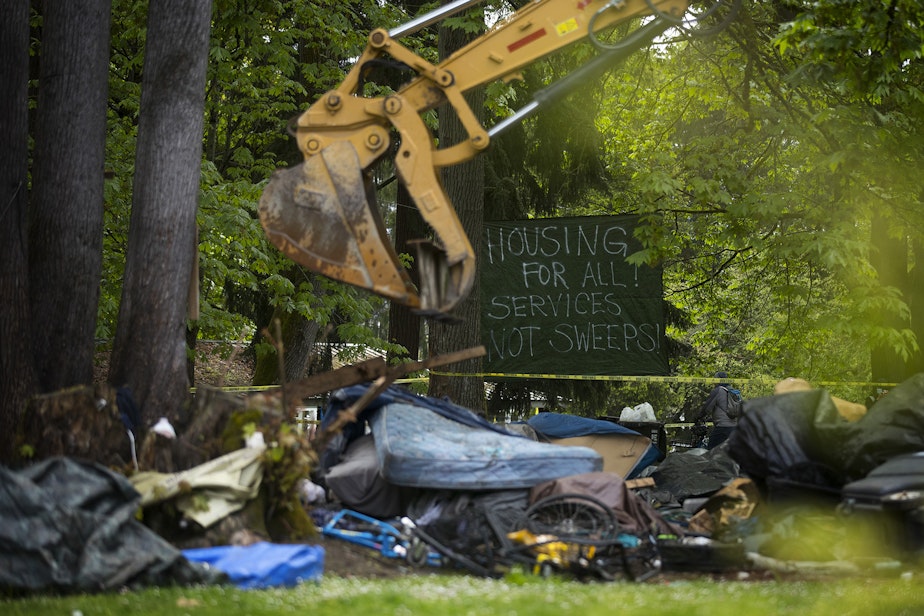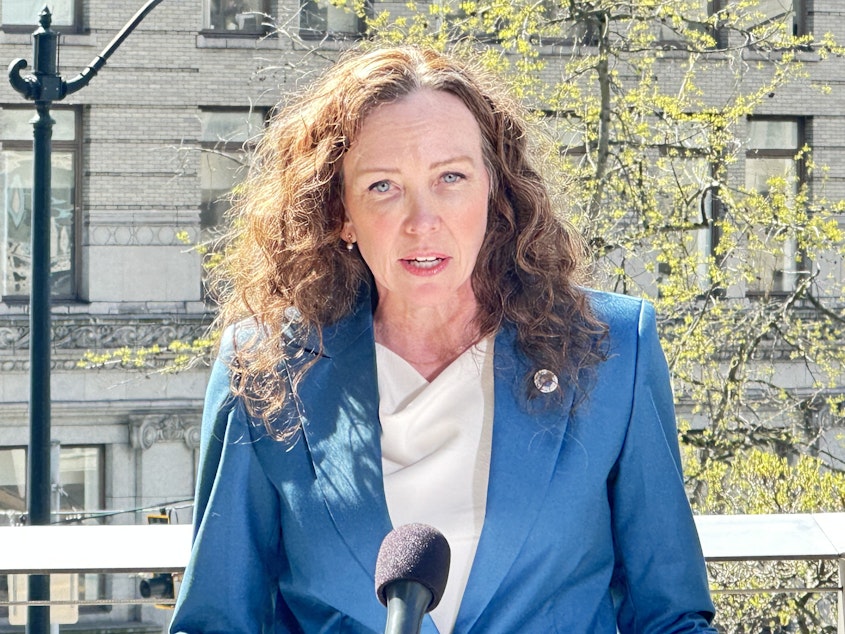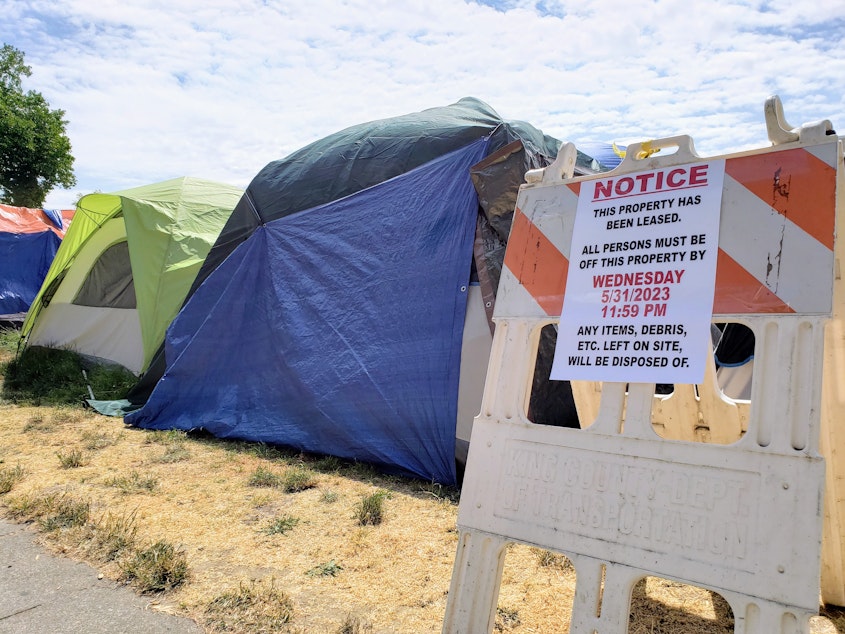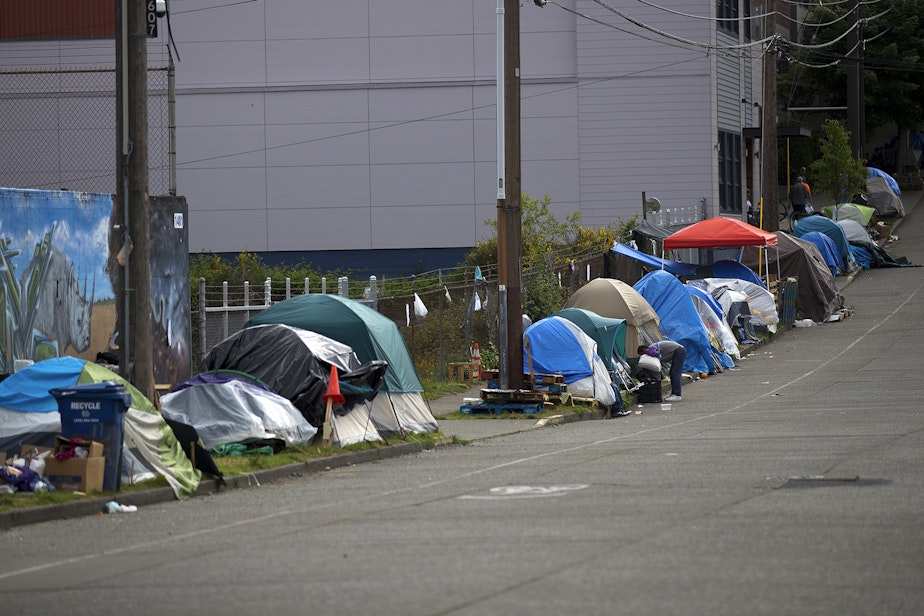Does the US Supreme Court ruling on public camping bans criminalize homelessness?

The U.S. Supreme Court ruled Friday that cities can ban camping and sleeping in public, even if there is no shelter to send them to, overturning a previous ruling that has guided cities' approaches to homelessness for years.
Seattle was among the cities seeking the Supreme Court's decision this week.
"Today’s ruling makes it clear that determining policy to address homelessness is a task for locally elected leaders,” Seattle City Attorney Ann Davison said in a statement. “This decision emphasizes the importance of local authority."

In recent years, local policies around whether public sleeping or camping can be banned have centered on the Eighth Amendment, which bars cruel and unusual punishment. A 2018 U.S. Court of Appeals ruling stated that cities could not oust people sleeping in public if there is no shelter space available for them. That decision stemmed from a case in Boise, Idaho.
RELATED: Judge rules some of Seattle’s encampment removal rules are unconstitutional
Seattle and other cities across the West have long argued that the previous ruling hampered their response to the homelessness crisis and their ability to keep streets clean and lawful. As Seattle City Attorney, Davison previously wrote an amicus brief for the current case, which was also signed by Spokane, Tacoma, and other cities spanning the country.
Sponsored

In her statement after the ruling, Davison said number of local governments that supported Grants Pass, Oregon, in the lawsuit demonstrates their commitment to "creating safe and healthy environments for everyone in the community."
"Supporting people who are homeless is a crucial responsibility we all bear," Davison said. "At the same time, we cannot ignore the impact of encampments on our communities. Local governments, nonprofit groups, and interested community members must all work towards common goals of more affordable housing, less fentanyl and addiction, and better behavioral health treatment.”
This week’s 6-3 ruling reverses a lower court ruling. The Supreme Court said cities can ban camping in certain areas, even when there is no shelter space available. The majority opinion argued that this is not a cruel and unusual approach since it does not inflict terror or pain.
Sponsored
Speaking for the dissenting minority, Justice Sonia Sotomayor said the ruling criminalizes homelessness.
"Sleep is a biological necessity, not a crime," Sotomayor said.
RELATED: Why Burien is suing King County over the city's own camping ban
Following Friday’s ruling, Seattle Mayor Bruce Harrell’s office stated that the Supreme Court’s decision will not affect the city’s approach homelessness and Seattle will continue to operate “based on data, best practices, and our values.”

The mayor’s office noted that the city handles encampments through its Unified Care Team according standards set in 2017, which offer shelter and services to people experiencing homelessness while also keeping “public spaces clean and accessible for everyone.”
The mayor's office also stated that, in 2023, the care team reported a 20% increase in shelter referrals and a 24% decrease in the number of tents citywide.
A judge also ruled in July 2023 that one approach Seattle has used for encampment removal was sometimes unconstitutional. That court ruling found that the city's labeling of certain camps as "obstructive" to be overly broad. According to Real Change, encampment sweeps in Seattle peaked just before this court ruling, in June 2023, and the vast majority of these were labeled as "obstructive."
The statement said public safety incidents at encampments also decreased last year, with a reduction in the number of fires and incidents of shots fired. Those trends are continuing in 2024, according to the mayor's office.
"Since Mayor Harrell took office, encampments in parks and impacting downtown and neighborhood sidewalks have significantly decreased,” the statement said.
RELATED: In Burien, 'the soap opera continues' as quarrels grow over city's camping ban
Sponsored
But Derrick Belgarde (Siletz), executive director of Chief Seattle Club, said the Supreme Court decision is just another example of how the U.S. refuses to live up to its promises to Native peoples.
"Native peoples in Seattle, King County, and across the country continue to experience the highest rates of homelessness stemming from removal and relocation policies the United States put in place, yet they refuse to be accountable and are passing the buck for cities to figure out," Belgarde said in a statement. "Whenever we see setbacks, especially in policy, it impacts the communities that are most marginalized by homelessness, mainly BIPOC communities."

Belgarde noted that Native people represent less than 2% of the population in Seattle and King County, but account for 32% of the people in the region considered chronically homeless.
"This is unacceptable," Belgarde said. "Now, cities across the country have the power to treat a person as a criminal just because they don’t have a place to sleep."
Sponsored
Belgarde said he remains hopeful that the city of Seattle will "live up to their promises of addressing homelessness in our region."
"I expect them to be a model for the rest of the country and show that in order to solve homelessness you must work with the communities most affected," he said.





